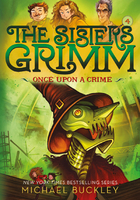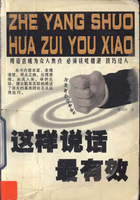by Thom Hartmann
For Senator Fritz Hollings,
who fought the good fight
when no one else would.
In this book, Derek Cressman makes the powerful and persuasive claim that by "enhancing" freedom of speech through its Citizens United ruling (and others), the US Supreme Court has done real damage to actual freedom of political speech in America. So much damage, in fact, that our democratic republic is now in a serious crisis and heading in a very, very bad direction.
Cressman, with elegant examples, shows how historically we have actually enhanced political free speech by regulating it, be it time limits for public input at a city council meeting or the time limits for debate in Congress.
And he shows how, by embracing a radical, libertarian-like position of laissez-faire with regard to money in politics, the Supreme Court has driven our democratic process of electing representatives totally off the rails. (Keep in mind that the entire "libertarian" concept, and then the Libertarian Party itself, were devised and created in the 1940s by the nation's largest business groups to provide a moral/intellectual/legal argument for diminishing the ability of government to "meddle" in the business of this country's largest corporations.)
Spending money was historically considered a "behavior" and thus could be regulated (as we particularly did in the early 1970s after the Nixon corruption scandals). With the Buckley v. Valeo decision in 1976, the Supreme Court flipped more than two hundred years of legal precedent on its head by ruling that investing money in politicians and the political process was protected by the "free speech" provision of the First Amendment. The result-now on steroids with the 2010 Citizens United expansion of that SCOTUS doctrine-has been pretty easy to see.
In a democracy, you'd assume that the desires of the majority of the people would determine the content and probability of passage of legislation, from the local to the federal level. And, indeed, for much of America's history that's how it worked, particularly in the middle of the twentieth century. (Who was enfranchised to vote also swung things, but that's another argument for another book.) But those days are gone. Elected officials now disregard the desires of the people and focus instead on pleasing the billionaires.
Unregulated political "free speech" is a virtual oxymoron, like a "free football game" would be. In sports, we're quite used to rules and regulations: they make the game fair for everybody involved. But if the logic the Supreme Court has applied to the spending of money for political persuasion were applied to football, the game would be quite different. Whichever team had the most money could pay to rewrite the rules to determine where to put their goalposts, for example, or where to kick off and kick field goals from. A rich team, putting the goalposts on its own ten-yard line, would only have a ninety-yard field to worry about; the poorer team would have to play the full hundred yards.
Imagine if the referees in a football game were supplied by the teams, fifty-fifty, but it took a majority of them to conclude a call on a play. And then one of the teams told their referees never to agree to call any penalties against "their" team. How could anybody call that a "fair game"?
It's reminiscent of the 2015 announcement by Federal Election Commission chair Ann M. Ravel that the three Republicans on the six-person board of the FEC refused to allow the FEC to consider any consequential enforcement of federal election laws (it takes four votes to proceed with an action against a donor or candidate). Billionaires and corporations heavily favor the Republicans in their political spending, and the Republican appointees on the FEC board want to keep it that way. As the Associated Press and the New York Times reported on May 2, 2015: "She [Chairwoman Ravel] says she has now essentially abandoned efforts to work out agreements on what she sees as much-needed enforcement measures."[1]
Just like in sports, business, or society in general, politics only works honestly if it operates within well-understood, transparent rules that everybody agrees to follow. When the unelected Supreme Court-not a legislature, not a president or governor, not a single elected official in the history of our nation-said that the rules pertaining to the spending of money passed by Congress and signed by several presidents shouldn't be enforced, political anarchy was the predictable result (as explained in detail in John Paul Stevens' dissent in Citizens United).
The result is that the first viability test for political candidates for our highest offices is a simple question: "How many billionaires and transnational corporations support you?" And that's not democracy; it's the antithesis of the republic our Founders envisaged.
As I've noted in previous books and articles, even our Founders thought the idea that turning a nation's political and economic systems over to "free market" corporatists is idiotic. Moreover, they warned us of an overreaching judiciary turning into an oligarchy, as Thomas Jefferson wrote to William Charles Jarvis in 1820:
You seem to consider the federal judges as the ultimate arbiters of all constitutional questions, a very dangerous doctrine, indeed, and one which would place us under the despotism of an oligarchy. Our judges are as honest as other men, and not more so. They have with others the same passions for the party, for power and the privilege of the corps. Their power is the more dangerous, as they are in office for life and not responsible, as the other functionaries are, to the elective control. The Constitution has erected no such single tribunal, knowing that to whatever hands confided, with the corruptions of time and party, its members would become despots. It has more wisely made all departments coequal and co-sovereign within themselves.[2]
In a letter to Samuel Kercheval, Jefferson put his faith in the people, not the courts or the wealthy: "I am not among those who fear the people. They, and not the rich, are our dependence for continued freedom.…We must make our election between economy and liberty, or profusion and servitude.…[Otherwise], as the people of England are, our people, like them, must come to labor sixteen hours in the twenty-four…and the sixteenth being insufficient to afford us bread, we must live, as they now do, on oatmeal and potatoes; have no time to think, no means of calling the mismanagers to account; but be glad to obtain subsistence by hiring ourselves to rivet their chains on the necks of our fellow-sufferers."[3]
A totally "free" market where corporations reign supreme, just like the oppressive governments of old, Jefferson said, could transform America "till the bulk of the society is reduced to be mere automatons of misery, and to have no sensibilities left but for sinning and suffering. Then begins, indeed, the bellum omnium in omnia [war of all against all], which some philosophers observing to be so general in this world, have mistaken it for the natural, instead of the abusive state of man."
Derek Cressman, virtually channeling Jefferson, has elegantly assembled a startling and motivating summary of how far our political process has degenerated as a result of these Supreme Court rulings, and offers some very specific solutions. Read on!













